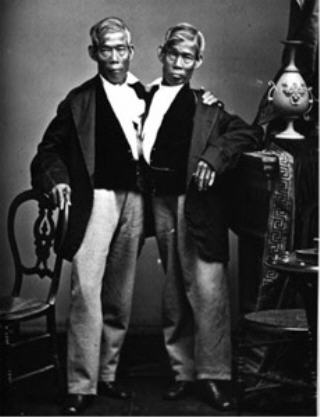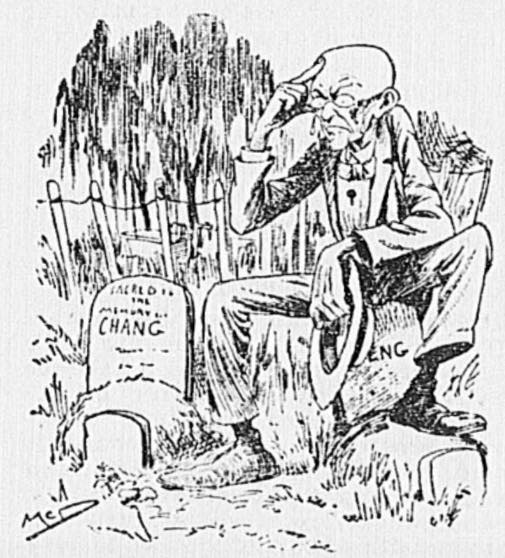
Chang and Eng were siamese twins who toured Europe and the United States. Their condition aroused a lot of curiosity at the time and the papers were always full of their latest stops and the astonishment of the crowds that paid to see them.
This newspaper article is on the death of Chang and Eng, published in The Carbon Advocate, January 24, 1874:

The death of the Siamese twins in Mount Alery, near Salisbury, N.C., on the 17th of this month, ended one of the most remarkable of Natural phenomena.
They came to this country in 1829, when they were 18 years old, having previously been shown in Europe. They were born on the coast of Siam, and their parents lived by fishing. None of their fifteen brothers and sisters were deformed, although many of them were twins.
They made the tour of the United States, and, excepting Tom Thumb, were the greatest objects of wonderment to the people. Nor was the curiosity concerning them confined to gaping ruralists.
To many men of science they were the first specimens of joined and living human beings. The fleshy ligature which linked them was about a lot in length, two inches broad and four thick, and through it ran a large artery and many veins, making their circulation identical.
Their breathing, too, was simultaneous when they were asleep.

They were not so entirely one, however, but that each had an entirely separate existence. Their senses were totally disconnected. One could not feel a hurt inflicted on the other, the ligature being the only part in which they were sensitive in common.
Much scientific discussion arose concerning them, mainly bearing upon the question of possible separation.
The details of their death are meagre. Chang died first, and a few minutes afterward Eng, who had for a few days been well, became delirious, and raved wildly. This may have resulted from the mental shock and apprehension as to his own fate; but more likely it was the result of a cessation of blood circulation between him and his brother. A stupor followed, and he died two hours afterward. [Source]

